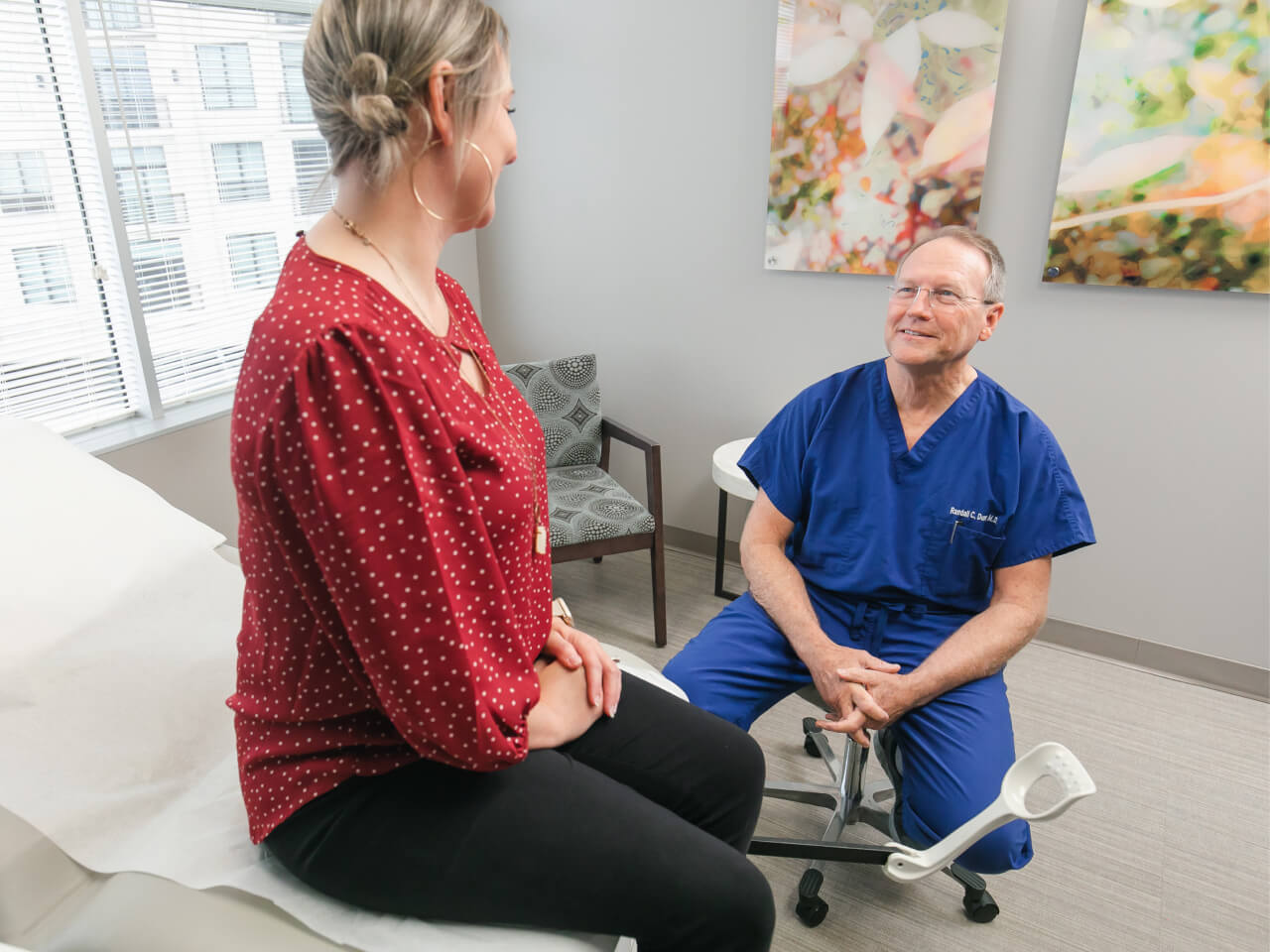IVF Success Rates at Aspire Houston Fertility Institute
When investing time, energy, and financial resources into a fertility treatment like in vitro fertilization (IVF), aspiring parents deserve the peace of mind that comes from selecting a clinic with high success rates. Most clinics report their success rates to the Society for Assisted Reproductive Technology (SART) and the CDC, allowing prospective parents to research their options before choosing a clinic. This data empowers patients to look for fertility clinics that maintain consistently high live birth rates in their IVF programs.
Patients choose Aspire Houston Fertility Institute (AHFI) for IVF because our success rates are higher than the national average, year after year.
A comparison of clinic success rates may not be meaningful because patient medical characteristics, treatment approaches, and entry criteria for ART may vary from clinic to clinic.

Achieving the Highest Chance of IVF Success
The best way to increase your chance of IVF success is to work with a reputable fertility clinic with a top-rated IVF program. You'll likely encounter significant differences in success rates between clinics. If you look at data from the CDC or SART websites, you'll find that some clinics have IVF live birth success rates as low as 10%, while others may exceed 60% for each egg retrieval procedure in women under the age of 35.
Federal law mandates that fertility clinics report their success rates; however, some clinics don't.
Patients have the right to know this information before starting fertility treatment. If a clinic you're researching refuses to provide their statistics or makes excuses for failing to provide data to SART or the CDC, it’s a reason for pause.
It's important to note that comparing clinic success rates may be impacted by varying patient medical characteristics, treatment approaches, and entrance criteria for IVF and other procedures across different clinics.
Other Factors That Contribute to IVF Success
In addition to the quality of a clinic's IVF program, several factors can influence the success of IVF treatments. These factors include:
- The age of the female partner
- The underlying reason for the couple or individual's fertility challenges
- Any previous experience with IVF, including past unsuccessful cycles
- The quality and quantity of the eggs available
Evaluating Your Fertility Clinic Options
Intended parents considering IVF can better evaluate fertility clinics and choose the best option when they have a thorough understanding of the techniques and technologies involved in treatment. While success rates and technology are important factors, it’s also important to feel comfortable in the space where you’re receiving care and confident in your care providers.
At AHFI, we provide individuals and families with comprehensive evaluation and diagnosis of fertility complications, creating individualized treatment plans. Our fertility treatment experts are professionals of the highest caliber and work on the leading edge of developments in fertility technology and treatment options.

Why Is Aspire HFI So Successful?
AHFI turns dreams into families. We do this by investing in the latest technologies, hiring top-trained and deeply caring reproductive endocrinologists, embryologists, nurses, and administrative staff members, and committing our practice to ongoing learning and stringent quality control.
Factors That Influence IVF: What You Need to Know
How successful is IVF on the first try?
According to SART, only 26% of IVF patients are successful on the first try. IVF success on the first try decreases dramatically for patients who are ages 35 and older.
How does age affect IVF success?
Women are born with a set number of eggs, which decrease in both quantity and quality as they age. Similarly, men experience a decline in sperm quality, count, and motility as they grow older. A reduced number of eggs or sperm can make it more difficult to successfully conceive. Additionally, using eggs and sperm of poor quality increases the likelihood that fertilization will not occur or that the resulting embryos will not be viable.
How many cycles do intended parents undergo on average before achieving success?
On average, most fertility patients undergo two to four cycles before having a successful pregnancy.
What causes an IVF cycle to fail?
Fertility and fertility treatments are complex and personal. Unfortunately, even in the best circumstances, pregnancy isn't a guarantee. One of the most common reasons for IVF failure is chromosomal abnormalities in the embryo, often caused by the quality of the eggs or sperm.
What increases the chances of IVF success?
Making certain lifestyle changes can enhance the likelihood of IVF success, such as:
- Eating a diet rich in lean proteins, vegetables, fruits, whole grains, legumes, and healthy fats
- Avoiding highly processed foods
- Limiting or avoiding caffeine and alcohol
- Eliminating smoking or vaping
- Engaging in daily low-intensity exercises, such as walking or yoga
- Getting adequate sleep
- Taking nutritional supplements as directed by a doctor
- Reducing stress by indulging in self-care activities
Learn More About IVF Success at Aspire HFI
We understand that navigating fertility care can be challenging. Our experienced team can answer any questions or concerns you have so that you can grow your family with confidence.
Get in touch
Aspire Houston Fertility Institute is ready to meet you right where you are in your fertility journey.
Have questions about what’s next for you and your family?
Contact us today and start your next chapter













